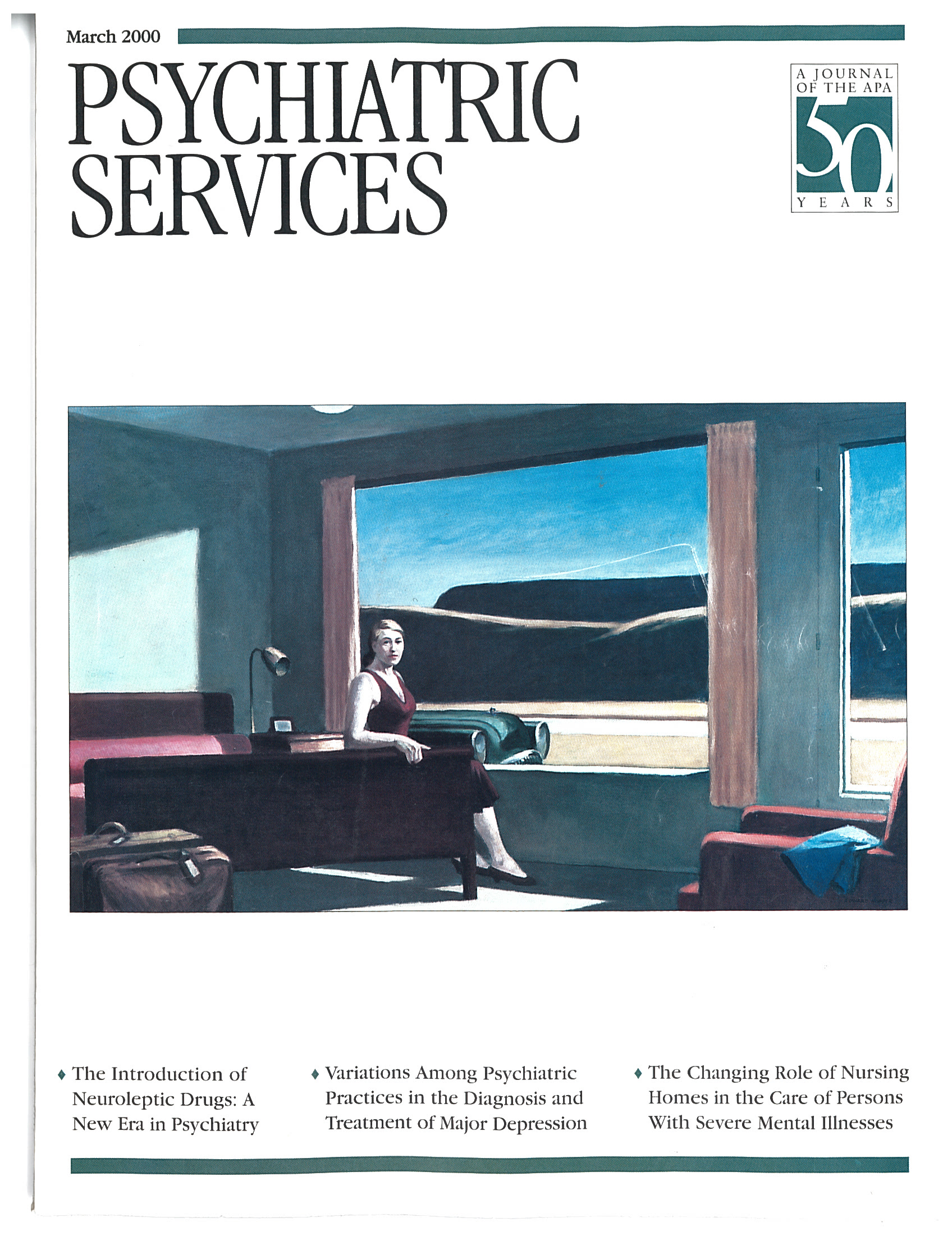Psychiatric Practice Variations in the Diagnosis and Treatment of Major Depression
Abstract
OBJECTIVE: Practice variations in the diagnosis, treatment, and outcomes of patients with major depression were examined within six psychiatric practices participating in a national outcomes-management project. METHODS: Six of 20 psychiatric clinics met selection criteria for this study and provided a database of 5,106 patients. Patients completed the BASIS-32, the Short-Form-36 Health Survey, and a Beginning Services Survey. Treatment information was also obtained directly from the clinician or through a medical record review. RESULTS: Although 73.1 to 77 percent of patients screened positive for a depressive disorder, only 18.5 to 36.8 percent were diagnosed with major depression (p<.001). Between 39 and 72 percent of patients received psychotropic medications, a significant difference across sites (p<.001). In addition, the number of psychotherapy sessions was significantly different across sites (p<.001). CONCLUSIONS: Patient care varies considerably across psychiatric practices, a finding that is particularly relevant for developers of performance indicators and risk-adjustment strategies for mental health.



